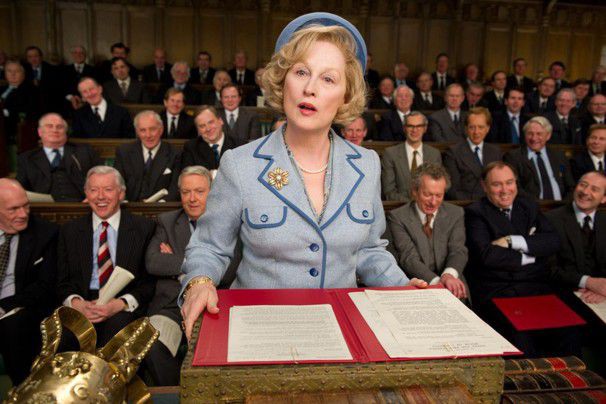If you don’t already have an opinion on Margaret Thatcher’s politics and policies, you probably won’t have one after watching The Iron Lady.
What did Thatcher accomplish while in office? How did she rise to power to become the first and only female British prime minister to date? The Iron Lady does a terrible job in highlighting her accomplishments. Really, I learned more from reading Thatcher’s Wikipedia page than I did watching the movie.
It’s not that I expected to receive a history lesson in a 100-minute feature film, but the movie really falls short on the entertainment aspect as well. It’s disappointingly average; I hoped it to be at least as entertaining as The King’s Speech, last year’s best-picture winner at the Academy Awards.
I can’t say I’m all that surprised to see that this film was directed by Phyllida Lloyd, who previously worked with Meryl Streep in the more lighthearted song-and-dance fare, Mamma Mia.
The Iron Lady needed a grittier director who recognized that Thatcher is a controversial and polarizing political figure. As far as the movie depicted, I didn’t feel Thatcher faced any real opposition until the end, when she was forced to resign after 11 years as prime minister.
Basically, everything Streep does in show biz screams “Give me an award!”, and The Iron Lady is no different. Streep is an impressive Thatcher, very much looking and sounding the part. I’m not sure if she deserves all the accolades she’s getting for this flick, as I couldn’t shake the nagging feeling that Streep’s performance is similar to her portrayal of Julia Child in Julie & Julia. I kept waiting for her to head to the kitchen to teach the audience how to prepare “beef bourguignon.” Anyhow, maybe it’s more Streep’s entire body of work being recognized in a year that lacked a lot of strong performances (male and female).
One big problem with the script (written by Abi Morgan) is that far too much time is spent on the 80-year-old Thatcher battling dementia and talking to her deceased husband Denis (Jim Broadbent). If this were a movie about coping with dementia, it might be more interesting watching a woman struggle with packing up her husband’s belongings.
These hallucinations were interspersed with flashbacks of a young Maggie (played by Alexandra Roach) as a driven and motivated grocer’s daughter, meeting a young businessman named Denis (Harry Lloyd), getting elected to Parliament in 1959 and her ascension to the top of the British government in 1979.
The scenes of Thatcher in office are cursory overviews, almost too fleeting to form an opinion on her conservative politics. There is mention of a war (Falklands), high unemployment and Thatcher’s opposition to integrating into the European Union. She comes across as most strong-willed during her dealings with her cabinet.
Unfortunately, what I’m going to remember most about The Iron Lady is that the title character spent a lot of time talking to her dead husband. That’s not the kind of reaction someone should have after watching a biopic on one of the most important women in history. ••
Movie Grade: B-





